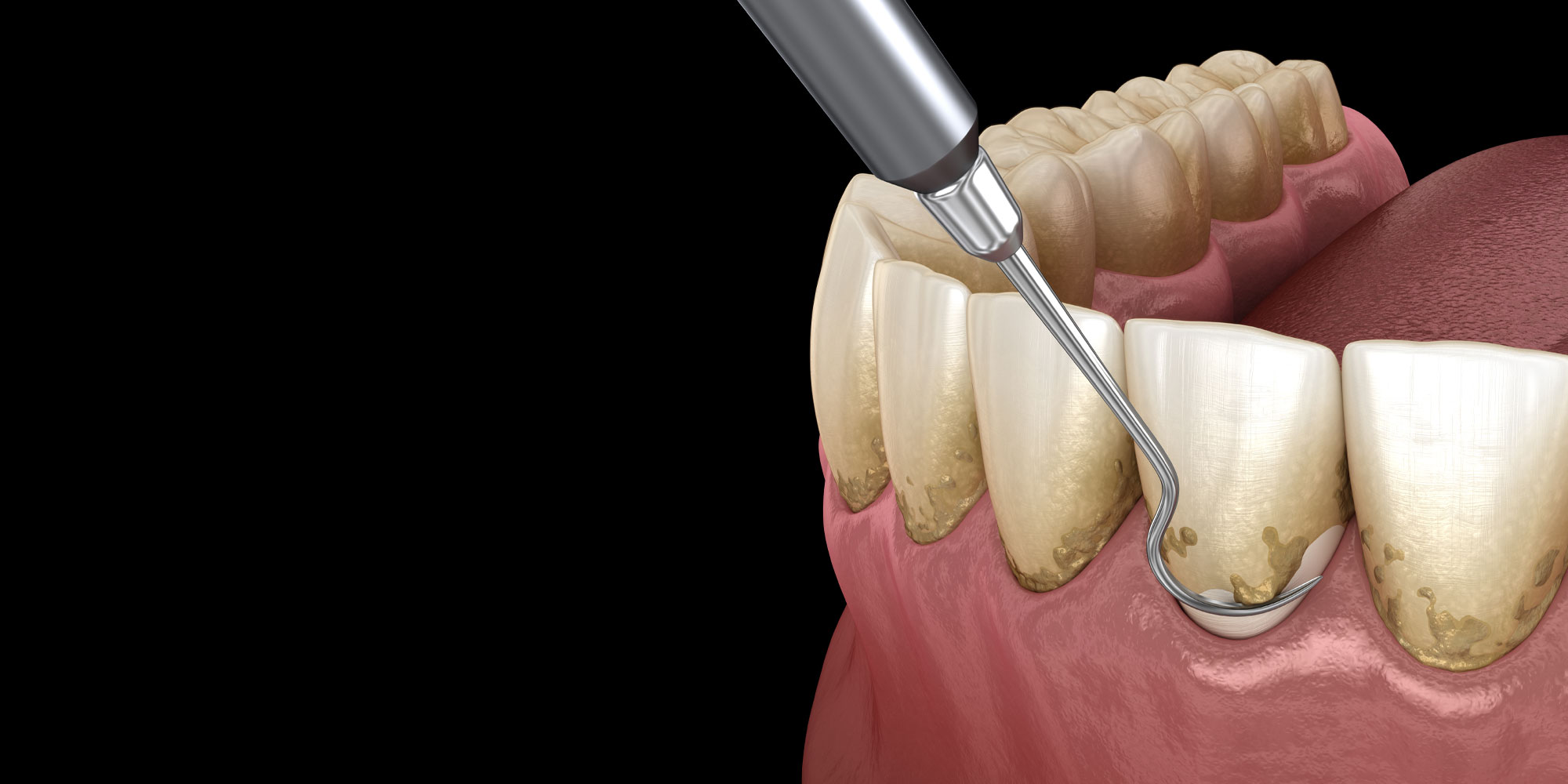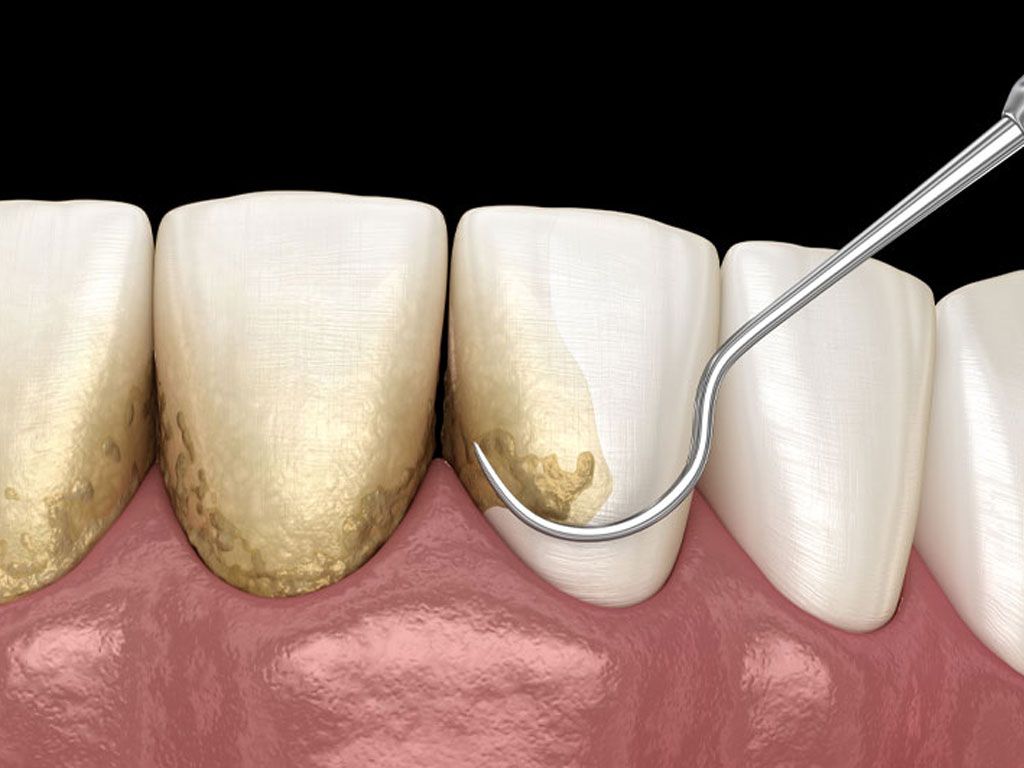
Scaling and root planing treatment is most effective in the early stages of gum disease and can help to reduce periodontal pocket depths up to two or three millimeters on average.
Periodontal disease occurs when bacteria that live below the gum line produce toxins which cause our bodies to destroy the bone that supports the teeth. There is no cure for periodontal disease. However, with early detection and timely treatment, we can help to stop the progression of this disease and prevent further bone and tooth loss. Bacteria live within the plaque that accumulates in the mouth. When plaque is not removed properly, it can solidify into difficult to remove calculus, or tartar. The bacteria affect the gums by causing the tissues to pull away from the teeth, creating periodontal pockets. When periodontal disease is left untreated, it can cause irreversible bone and tooth loss.

The general steps of scaling and root planing treatment may include a local anesthetic to numb the areas that will be treated. Your doctor may suggest a form of sedation, if necessary. The treatment often requires hand instruments and an ultrasonic tool to remove the plaque and calculus accumulation. Your doctor or dental hygienist will use the instruments below the gum line to clean the roots of your teeth and smooth any rough surfaces. The goal of this deep cleaning process is to clear away plaque and tartar as well as smooth the surfaces of the teeth to encourage the gum tissues to reattach to the teeth.
It is necessary for scaling and root planing treatment patients to maintain their oral health and cleanliness after the procedure. Home maintenance is a major part of the healing process. The mouth needs to be free of food, debris, and plaque in order to keep the bacteria from causing further destruction. Thorough brushing and flossing will be required to ensure that the mouth is clean at all times. It is also important to discontinue the use of tobacco products. This will promote healing and reduce the risk of infection.


It is best for patients to be in a healthy condition and not have recently had a major surgery before receiving a scaling and root planing treatment. Your doctor will ask you about your medical history and discuss sedation options. After your treatment, your doctor may recommend an antimicrobial oral rinse containing chlorhexidine gluconate to rid your mouth of bacteria and reduce the risk of infection.
Scaling and root planing treatment is most effective in the early stages of gum disease and can help to reduce periodontal pocket depths up to two or three millimeters on average.
Whether you are looking into getting dental implants, fix your receding gums, or treat periodontal disease – you can rely on Dr. Pierce Osborne, Dr. Michael Curry, and Dr. Wes Shelton. We service patients in Fayetteville, Rogers, Fort Smith, and Harrison, and the surrounding areas. Call or schedule an appointment with us today!